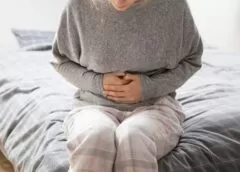Does your throat hurt after you eat? Do you have a chronic cough? Are you nauseated after you eat? Do you salivate heavily? Is it hard to swallow sometimes? Do you have chest pain? These symptoms of acid reflux can make your life hell but can be treated with the below advice.
When eating, never lie down! It would be best to sit in a sturdy chair with good posture. Allow your stomach to be decompressed and your esophagus to be fully extended. As you eat, enjoy every bite of your food so that you eat slowly and chew thoroughly. Then you may avoid acid reflux afterward.
Consuming any food during a reflux spell can make it worse. Many people overeat food, and they eat it fast. This can cause significant problems for someone suffering from reflux issues. Eat only to the point where your body feels full, rather than over satiated. Slow down while you are eating to relieve your troubles. Lay the fork down between taking bites and slowly chew your food thoroughly.
Exercise is an excellent way to stop the acid reflux. Through exercise, you can lose weight, putting less pressure on the stomach and reducing the severity and occurrence of heartburn and acid reflux. The key is to use moderate, low-impact exercises. Intense exercises can cause reflux through excessive agitation. Try to avoid drinking sports drinks and eating food before exercising, as these can cause reflux.
Stress is a huge opponent of acid reflux. Stress produces more acid inside your stomach. After each meal, do something you find relaxing. Read a book or go for a walk, for example.
Try eating your meals slower. Due to the extremely fast-paced world we live in, we tend to always be in a hurry. This carries over to our eating, causing us to eat way too fast. This increases the odds that we will overheat, which can cause acid reflux. Instead, take your time while eating. Thoroughly chew your food, and put down your fork after every few bites. Stop eating once you feel comfortable, not stuffed.
There are many over-the-counter medications you can take for acid reflux. They are called antacids, and they work by stopping excess acid production. Just be aware that no one medication works for everyone. If you try one and it is ineffective for you, keep trying others until you find the right one.
Take over-the-counter antacids or acid relievers. These are very helpful in relieving acid reflux for a lot of people. If they do not offer you relief, talk to your doctor about a prescription for your reflux. They can also help relieve symptoms and work to heal your esophageal lining.
Reduce the fat in your diet. Excess fat causes your LES muscle to relax, which delays stomach emptying. As a result, acid reflux is more likely to occur. Therefore, if you consume lots of fried foods, substitute them for leaner, grilled options. This is not only good for your acid reflux but also for your overall health.
When working out to help your acid reflux, be cautious about consuming food and beverages. Eating too soon or eating and drinking the wrong things can negate the positive effects of exercise for your reflux. It would be best to wait at least two hours after a workout to eat. Don’t drink sports drinks since their acidity can trigger your reflux.
Give yourself at least three hours after eating dinner before hitting the sack. This is helpful because your stomach is less efficient at processing food when you are unconscious. You will probably wake up with acid reflux if you sleep within three hours after your dinner.
Knowing the symptoms of acid reflux is essential knowledge to have. If you find chest pain combined with discomfort after eating, burping, nausea, sore throat, bitter taste in your mouth, and a chronic cough, you likely have acid reflux. Talk to your doctor for a proper diagnosis.
Reduce the amount of caffeine you consume during the day to help with your acid reflux. Caffeine can cause gas to build up in your stomach, leading to inflammation. Try not to drink a lot of coffee or soda during the day to limit the extremity of your condition.
Get medium-level exercise into your daily routine. Exercises such as walking for two miles can help your digestion. As an added benefit, it can also help you lose weight which can again help your acid reflux issues. It’s a win both ways! Steer clear of high-level exercise, though, as it can cause your acid reflux to spike.
Avoid wearing clothing that is too tight around your waist and belts. These items dig into your abdomen and could cause acid production, leading to acid reflux disease. Try to wear comfortable clothing around your waist, and if you need to wear a belt, do not put it in the last hole.
If you have acid reflux, some natural solutions will help reduce some of your heartburn. If you begin using calcium supplements, you can start alleviating heartburn. Calcium can reduce or even prevent heartburn because it strengthens the lower esophageal sphincter (LES). Since calcium isn’t an anti-acid, it won’t provide fast relief. However, over time, it will provide long-term relief.
To prevent the onset of an acid reflux attack, you should cut down on the size of your meals. It has been found that eating large meals, no matter the content is a potential cause of acid reflux. Your body can only digest so much food at once, and acid reflux is a sign that you may be eating more than your body can handle.
The pain in your chest and throat can be dealt with one step at a time now that you have read this article and know what those steps are. The first move is to take one tip and use it in your life, and then relief will come shortly afterward. Get down to work!




